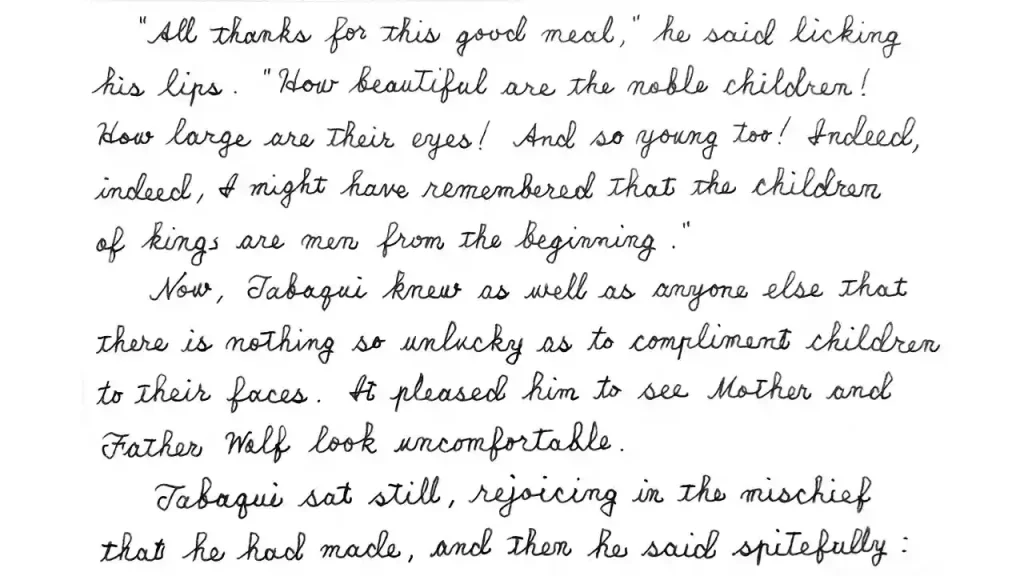“All thanks for this good meal,” he said, licking his lips.
日本語訳:
「おいしい食事をごちそうさま」タバキはそう言って、くちびるを舐めました。
- 美味しい / oishii (おいしい, delicious)
- 食事 / shokuji (しょくじ, meal)
- 唇 / kuchibiru (くちびる, lips)
“How beautiful are the noble children! How large are their eyes! And so young too! Indeed, indeed, I might have remembered that the children of kings are men from the beginning.”
「この立派な子供たちはなんて美しいのだろう!
彼らの瞳はなんて大きいのだろう!
とっても若いのに!
もちろん、私は覚えていたぞ。王者の子供たちは初めから一人前なのだと」
- 立派 / rippa (りっぱ, splendid/admirable)
- 瞳 / hitomi (ひとみ, pupil/eye)
Now, Tabaqui knew as well as anyone else that there is nothing so unlucky as to compliment children to their faces.
タバキはよく知っていました。子供たちの顔をほめることほど縁起の悪いことはないと。
- 褒める / homeru (ほめる, to praise)
- 縁起が悪い / engi ga warui (えんぎがわるい, unlucky/inauspicious)
It pleased him to see Mother and Father Wolf look uncomfortable.
母オオカミと父オオカミの不快な表情を見て、タバキはよろこびました。
- 不快 / fukai (ふかい, unpleasant/uncomfortable)
- 喜ぶ / yorokobu (よろこぶ, to rejoice/to be happy)
Tabaqui sat still, rejoicing in the mischief that he had made, and then he said spitefully:
タバキは座ったまま、自分が起こしたいたずらによろこびました。
そのあと、彼は意地悪く言いました。
- 悪戯 / itazura (いたずら, prank/mischief)
- 意地悪い / ijiwarui (いじわるい, mean/spiteful)
“Shere Khan, the Big One, has shifted his hunting grounds. He will hunt among these hills for the next moon, so he has told me.”
「偉大なシア・カンが狩場を移した。
次の月の期間、彼はシーオニーヒルズの中で狩りをするつもりだ。そう言っていた」
- 偉大 / idai (いだい, great/magnificent)
Reference : The Jungle Book by Rudyard Kipling (project gutenberg)
English Story With Easy Japanese Translation
